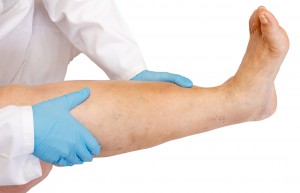Treatment Options
- The initial management of restless legs should include patient education (see resources section), investigation and correction (where feasible) of secondary causes, withdrawal of associated medication if possible and safe.
- Consider the use of the validated patient symptom self-rating scale from the IRLSSG

- Give self help advice
- Good sleep hygiene
- Stop smoking support
- Moderate exercise
- Reduce excessive caffeine, alcohol or chocolate consumption
- Discuss ways of alleviating symptoms
- Relaxation exercises
- Heat (pad or warm bath)
- Massaging affected limbs
- Distraction at times of rest (reading, mental games)
- Walking or stretching
- For people with idiopathic restless legs syndrome consider the impact of their symptoms
- Mild symptoms may be managed by the education and self help measures discussed above
- Moderate to severe symptoms may require drug treatment
You may find this algorithm useful
Drug treatments for restless legs
When deciding on a drug treatment for symptom control, a number of factors must be taken into account. The medications used in this condition have potential severe side effects and none are suitable for restless legs in pregnancy.
Prior to commencing drug treatment patients should be aware of the ill effects (see below), the fact that they will potentially need to take the medication life-long and that the efficacy may wane with time.
| Treatment option | To be noted |
|---|---|
|
Dopamine agonists Pramipexole or Ropinirole or Rotigotine |
|
| Pregabalin or Gabapentin |
|
| Weak Opioids e.g. Codeine |
|
| Hypnotics Benzodiazepines or Z-drugs |
|
Impulse control disorder
Impulse control disorder is an important and frequent side effect of dopamine agonists. Up to 17% of patients with restless legs syndrome taking these drugs may be affected. Symptoms include pathological gambling, binge eating, compulsive shopping, and hypersexuality. Prior to initiation the patient should be counselled and partners, carers or close family members should be aware of the signs. If present, the dopamine agonist should be withdrawn or the dosage reduced to a level at which the impulse control disorder disappears.

